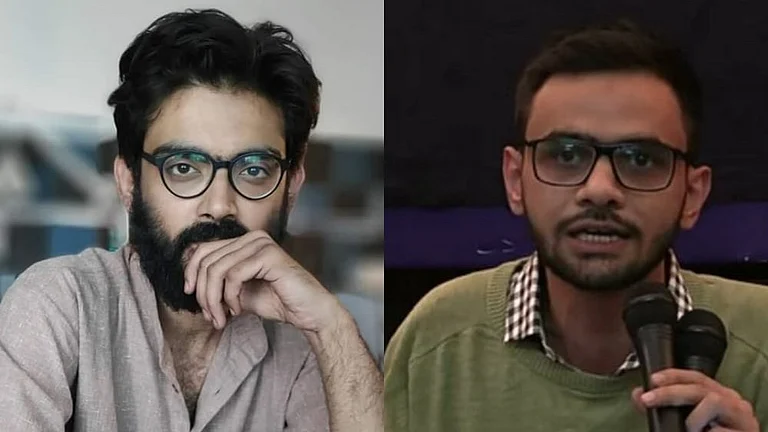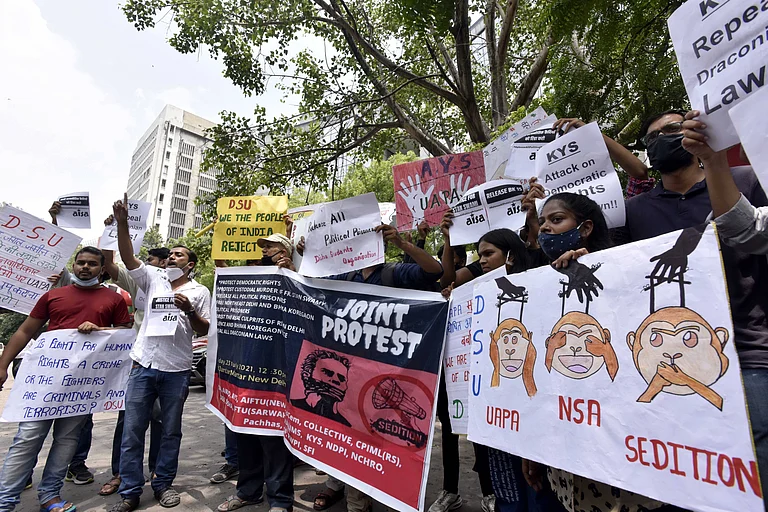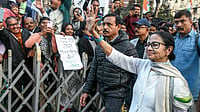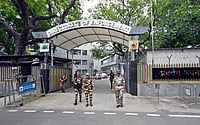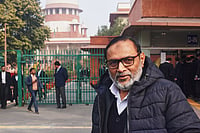
The Supreme Court adjourned the hearing of Umar Khalid and others’ bail pleas in the 2020 Delhi riots ‘larger conspiracy’ case to September 22.
Khalid and co-accused are challenging a September 2 Delhi High Court order rejecting their bail under the UAPA.
The case, registered as FIR 59/2020, alleges rioting, conspiracy, and UAPA offences, with the trial yet to begin after five years in custody.
After five years in prison, Umar Khalid and others will have to wait longer for their chance to seek bail, as the Supreme Court on Friday adjourned the hearing of their pleas in the 2020 Delhi riots ‘larger conspiracy’ case to September 22. The petitions were listed before a bench of Justices Aravind Kumar and N.V. Anjaria, but the matter was deferred once again.
The bail plea had previously been postponed after the case file reached the court only a day before the scheduled hearing. Khalid, arrested under the Unlawful Activities (Prevention) Act, has been in custody since September 2020.
Khalid, along with Sharjeel Imam, Gulfisha Fatima and Meeran Haider, have petitioned the SC to set aside a Delhi High Court order dated September 2 rejecting their bail applications in a case of conspiracy to undermine national interests related to the northeastern Delhi riots in 2020. The case is filed under the stringent Unlawful Activities (Prevention) Act (UAPA), which states that Khalid and others must show that the prosecution has failed to make a prima facie case in order to secure bail—a reverse burden of proof compared to that under the BNS and IPC.
What’s The Case Against Umar Khalid and Others
The crux of the Delhi Police case against Khalid and other co-accused is FIR 59/2020. The allegations against the accused include rioting, unlawful assembly, conspiracy, sections of the Arms Act, and most significantly, sections 16-18 UAPA, which are alleged “unlawful activities,” “terrorist activities”, and conspiracy.
In the district and High court, the prosecution has relied on speeches, WhatsApp group affiliation and discussions, and also alleged the co-accused held secret meetings based on protected witness testimony. The Delhi Police alleges that the violence during the 2020 anti-CAA/NRC protests, in which over 50 people, mostly Muslims, were killed, was not spontaneous, but a “well-planned conspiracy” with “sinister motives.”
The High Court appeared to agree that, prima facie, the police case showed that Khalid and Imam’s role in that alleged conspiracy was “grave”. The court also stated that it had not thoroughly reviewed the evidence, as that was the responsibility of the trial court.
Trial, Delay and Legal Proceedings So Far
Khalid has been imprisoned since September 2020. The trial in the larger conspiracy case has yet to start. The Delhi Police filed its first chargesheet in the case in September 2020, followed by the first supplementary chargesheet in October 2020. The second supplementary charge sheet, allegedly exceeding 3,000 pages in length, along with supporting electronic material, was filed in 2021. In November 2020, the Delhi High Court took cognisance of a charge sheet in connection with FIR 59/2020.
In October 2022, the Delhi High Court refused bail on the grounds that the allegations are not baseless. The Court held that alleged speeches and meetings attributed by police to Khalid and Imam suggested a criminal conspiracy.
In the September 2, 2025, verdict, the High Court again held that the matter, which has been ongoing for five years without reaching the trial stage, is moving “at a natural pace.” Delay alone does not warrant bail in UAPA non-bailable offences when prima facie material exists, the court said.
As the Supreme Court hearing is set to begin, critics and supporters’ eyes are glued to the dais to see whether justice delayed will translate into justice for the detained, or if the idea of bail as the norm will not be enough to outweigh the gravity of UAPA charges against Khalid and others who lead and support protest movements.






.png?w=801&auto=format%2Ccompress&fit=max&format=webp&dpr=1.0)

